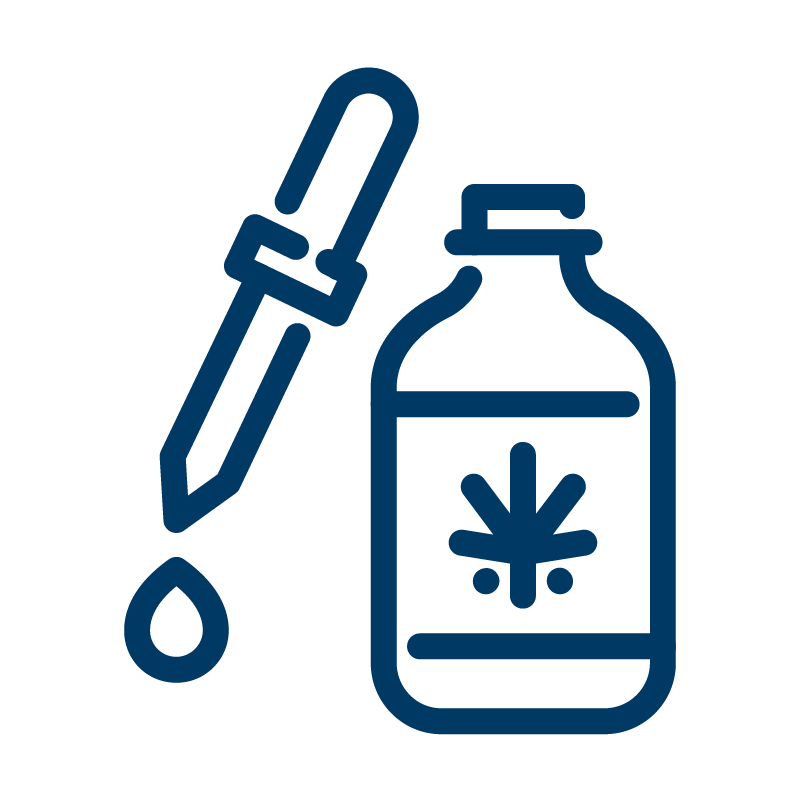Cannabidiol (CBD)

 There is a growing number of cannabidiol (CBD) products that can be purchased in forms such as oils, extracts, vape and e-liquids. This advisory note aims to provide information about the status of CBD within sport and the risks associated with the use of CBD products for athlete’s subject to the rules of anti-doping.
There is a growing number of cannabidiol (CBD) products that can be purchased in forms such as oils, extracts, vape and e-liquids. This advisory note aims to provide information about the status of CBD within sport and the risks associated with the use of CBD products for athlete’s subject to the rules of anti-doping.
What is cannabidiol?
CBD is one of around 110 known cannabinoids produced by the cannabis plant. It has a different chemical structure to Δ9-tetrahydrocannabinol (THC), which is the psychoactive compound that illicit drug users use to get “high”. CBD does not have this effect.
What is the status of cannabidiol in sport?
CBD is not currently listed on the World Anti-Doping Agency’s Prohibited List. As a result, it is permitted to use in sport. All other cannabinoids (including but not limited to cannabis, hashish, marijuana, and THC) are prohibited in-competition. The intention of the regulations is to prohibit cannabinoids that activate the same receptors in the brain as activated by THC.
NB. THC has a reporting threshold in urine of 150 nanograms per milliliter. Other cannabinoids on the Prohibited List do not have a reporting threshold, meaning that the detection of even the smallest amount in urine will be considered as an Adverse Analytical Finding (AAF).
What is UK Anti-Doping’s position regarding the use of cannabidiol products in sport?
The use of any CBD product is at the athlete’s own risk. As a result, CBD products should be considered in the same way as all other dietary supplements. That being, if an athlete did use a CBD Product that led to an Adverse Analytical Finding for THC (or any other prohibited substance), their use of this product would not mitigate their fault.
What is the composition of cannabidiol products?
It is difficult to extract only CBD from the cannabis plant meaning that most CBD products will contain a mixture of compounds that are derived from the plant (including THC). CBD products that are derived from industrial hemp claim to contain low concentrations of THC. However, the following factors may influence the levels of THC within CBD products:
- The variety of the plant used
- The part of the plant used
- The refinement process used by the manufacturer
- The preparation of the product
These factors make it challenging to provide a definitive answer on whether use of a product would lead an athlete to ingest enough THC to incur an AAF should they be drug tested in-competition.
What are the risks of using cannabidiol products for athlete’s subject to the rules of anti-doping?
Despite the permitted status of CBD, athletes must still consider the risk of inadvertently ingesting a CBD product that either has a higher THC concentration than expected or contains another cannabinoid that is prohibited in sport. This may occur if:
- a product becomes contaminated with a different species of plant that has a high-THC concentration; or
- the wrong part of the cannabis plant is used during the manufacturing process (due to misidentification).
Indeed, the FDA (US Food and Drug Administration) routinely publish quality control issues found in US manufactured CBD products. The same risks apply to UK manufactured products.
A study published by the Journal of the American Medical Association in 2017 documented the detection of THC in some CBD products at levels higher than is currently permitted by the FDA.
A study published by Forensic Science International in 2018 also detected 5F-ADB (a prohibited cannabinoid) in commercially available CBD e-liquids in the US.
Is third-party batch testing a solution to minimise the risk of ingesting cannabidiol products that have a high THC content or that contain other cannabinoids that are prohibited in sport?
Manufacturers may conduct their own testing - the reliability of these in-house testing programmes is unknown. Additionally, third-party laboratories who do screen CBD products for THC may not screen products for the presence of other prohibited substances. As a result, athletes should not rely on such test results as reassurance that the product they wish to use has a low THC content and is free from containing other cannabinoids that are prohibited in sport.
